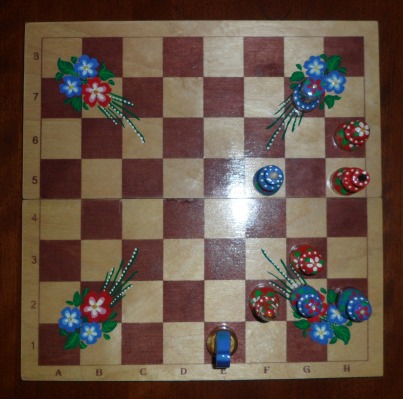My course on irrationality and foreign policy is now wrapping up with a couple of case studies, one of which is the First World War. Tsar Nicholas II’s decision to order a full mobilization of his army in July 1914, turning a local conflict between Austria-Hungary and Serbia into a Europe-wide war, was such a bad one that it defies easy explanation.
The Russians ended up in a war they did not want mainly because once they had decided that war was possible they were more concerned with not being at a disadvantage than with preventing it. As Christopher Clark has shown in his book The Sleepwalkers, European leaders were well aware of the scenario in which troubles in the Balkans could lead to a wider European war. Because Russian leaders knew that an Austrian attack on Serbia could escalate into an Austro-Russian war and from there into a broader European conflict, when they heard that Austria-Hungary had declared war on Serbia they assumed that Austria wanted such a conflict. From this point on, Russian leaders were in what psychologists call an ‘instrumental’ mindset: that is to say they were no longer concerned with whether their policy was a good one, but rather with how best to implement it.
Russian intelligence had obtained Austria’s war plans, and was aware that if Austria mobilized against Serbia, it would also secretly mobilize its forces on the Russian border. Austrian actions therefore meant that Russia had to mobilize as well, lest it be taken by surprise. The Russian Council of Ministers thus began the countdown to war by recommending to the Tsar that he order a partial mobilization of the army to cover those districts close to the Austrian border.
An important assumption at this point was that Austria would not act without German permission. If Austria had declared war on Serbia, that must mean that Germany was seeking war with Russia. This required a robust response if Russia was to be kept safe. The Russian General Staff insisted that a partial mobilization was impractical. If there was to be war, Russia had to be fully ready. The Quartermaster General of the Russian Army, General Danilov, pressured the Chief of the General Staff, General Ianushkevich, to persuade the Tsar to order a general mobilization. Eventually, and with great reluctance, the Tsar conceded.
What was wrong with this logic was that Germany didn’t in fact want to fight Russia. But a Russian mobilization meant that Germany had to mobilize too, and once it mobilized, its plans required it to attack France. In this way, the Russian decision ensured that the trouble in the Balkans would not be localized. By acting to maximize its advantages in the case of war, Russia made war certain.
The Roman strategist Vegetius famously remarked: ‘Si vis pacem, para bellum’ – ‘If you want peace, prepare for war.’ This advice is much loved by modern-day foreign policy hawks, who endlessly stress the need for high defence spending, and robust policies. The Russian experience in July 1914 proves Vegetius wrong: if you prepare for war, war is what you will get.





